Over the past four weeks I´ve had the opportunity to immerse myself in a living laboratory where South African journalists learn to analyze databases to produce stories of public interest.
The task was undertaken by the organization Code 4 South Africa within the framework of the first academy of data journalism in the African continent, which began operations in February 2016.
Eight journalists from different media have 12 weeks to learn how to search databases on their own – or request them from public entities – clean, analyze, and interview them.
Reporters study statistical techniques and data analysis to find answers of public interest in the sea of data in front of their screens.
They also learn to build their journalistic conclusions with hard data and give life to their articles, enriching them with multimedia, while they are able to create data visualizations with free tools available on the web.
The foregoing with the aim of encouraging their readers to explore fresh and deep angles on news they should care about as citizens, because they affect their quality of life.
The stories based on data analysis have the potential of allowing people to make more informed and better decisions, empowering them to demand changes in society. It is also about creating tools to make a difference in their health, education, and even political participation.
Parallel to this task of evangelization in the use and analysis of good practices of databases analysis to make journalism, the academy is creating a living newsroom model to produce news and reports from the investigation carried out by their students.
These reports are made in coordination with the editors of each media outlet and those of the academy (of which the Costa Rican journalist Daniela Quiros, editor of data analysis is part).
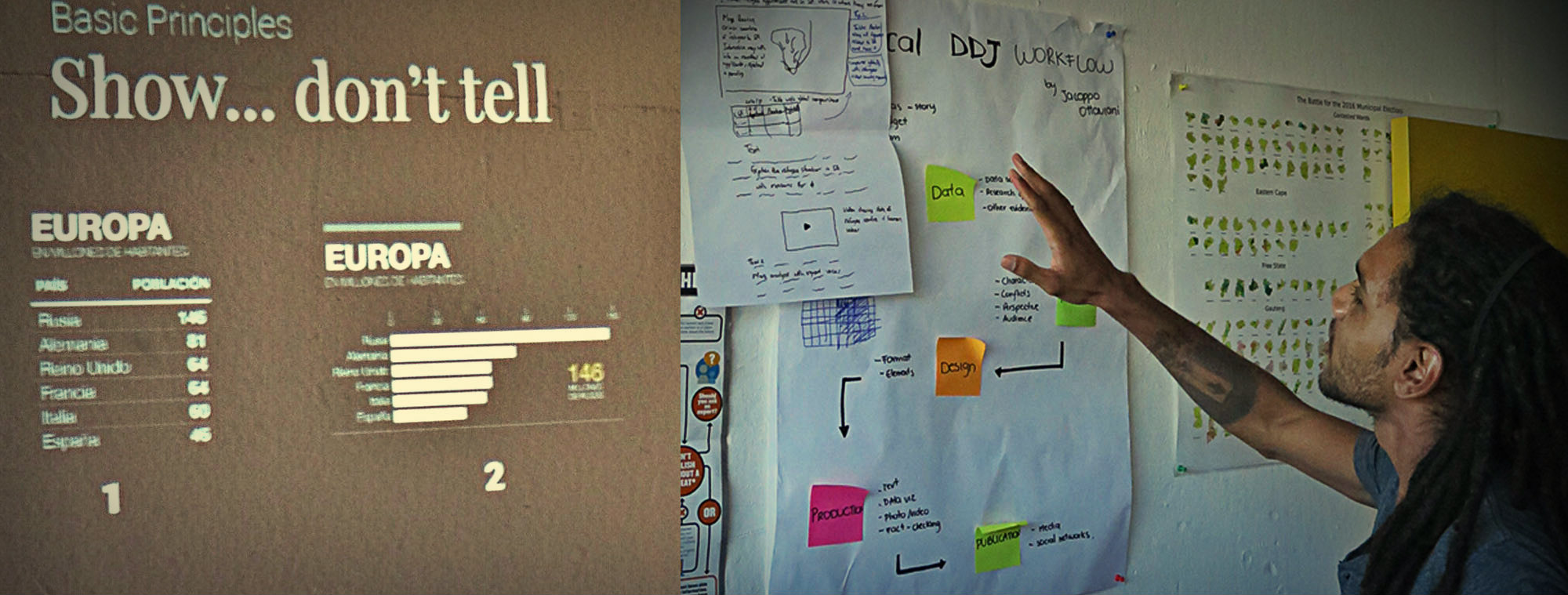
The challenge is twofold and unique. So far, this academy is the only one of its kind in the world.
Its purpose is to teach a group of journalists to analyze data on their own, to abandon their fear of mathematics and statistics, and to verify, along with the inescapable reporting from the streets, the human face of what numbers say.
Finally it is about building a human, interactive story, not only conceived in terms of writing a text.
The learning process has been intense because knowledge is strengthened as it is put into practice.
The process has not been free of doubts and frustrations, which is completely normal when new methodologies and technologies are embraced to improve the quality of journalism.
Learning by doing while struggling with the pressure of the closing deadline is part of what should be addressed in this academy.
But at the end of the day, there is a consensus: if data journalism matters is because of people who urge differentiated content and value to make better decisions or demand their rights.
In doing so, media also help sustain their own future, opening up possibilities for a new business model.
Data journalism is a powerful tool that enhances investigative journalism for unveiling corruption and protecting the public interest. It strengthens the investigative capacity, empowers watchdogs with new tools and allows innovation.
Below are a couple of articles produced so far by the Academy. In the coming weeks there will be more stories.
SONA as it played out on Twitter
Between countries‚ Ghislain is stuck in limbo
The exodus of teachers from SA is not slowing down
Great lessons
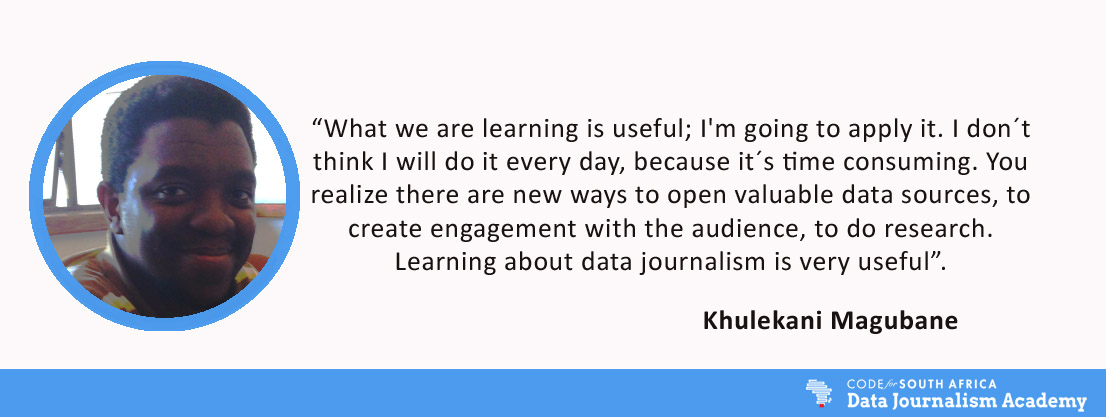
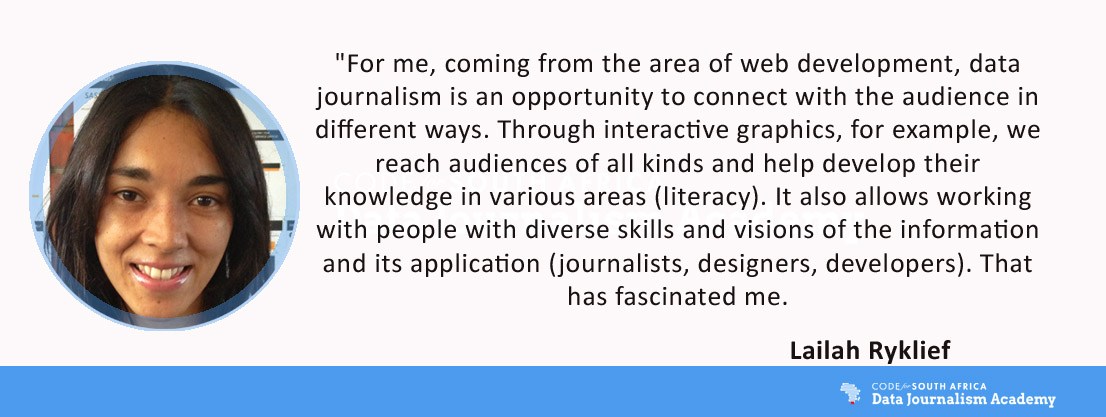
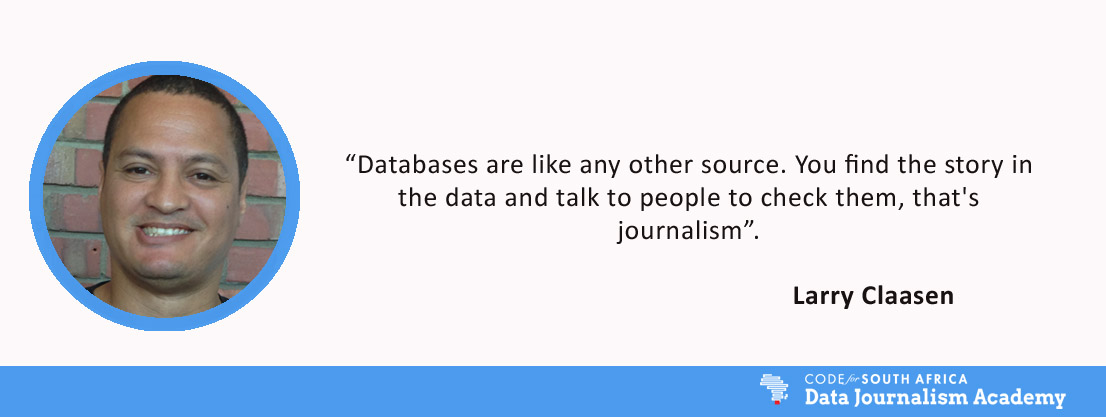
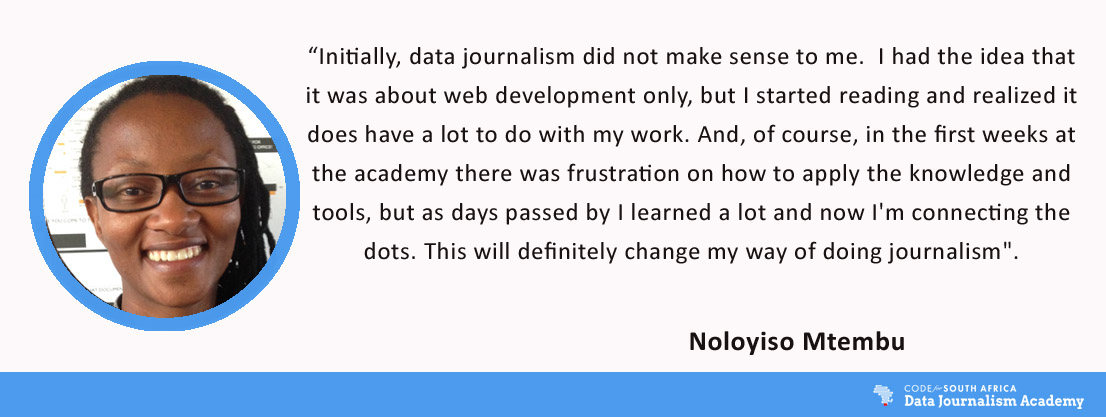
Why an academy
The idea of opening an academy of data journalism in South Africa began in 2015, when Raymond Joseph, a veteran journalist in this country since 1974 and currently Knight Fellow of ICFJ, joined forces with Adi Eyel, director of Code 4 South Africa, a civic technology organization promoting usage of data in order to drive social change.
They both shared the idea that technology and open data are a means, not an end, to assist the betterment of society and that this could be achieved through journalism.
From the beginning, they set out to create an academy where learning and its implementation were a living process within a newsroom environment.
Here, journalists produce stories that will be published in their media.
«They´re journalists that mainly come from print media. What we do is helping them change their mindset. We turn them into cross platform journalists, train them and, together, we create content for their media,» says Joseph, head of the Academy.
During training, reporters learn that in data journalism, data tell us exactly where the story is, but you should go to verify it in real life.
«The power of knowing how to analyze databases is that we can find stories that haven´t been told and should be» adds Joseph.
Freedom to experiment
Nonetheless, the founders of the school also wanted journalists to be free to experiment with ways of telling stories that have not been yet tested in their media.
«It’s not just an academy, it´s a laboratory of innovation, we´re learning to create engagement, new ways of telling stories, of creating usable tools for people and producing personalized content. We´re creating community and this, creating community, is the main challenge. The following is like monetizing the fidelity of that community. And, finding a way to do this is something that depends on the credibility of the media outlet and the credibility of its content. If you can´t make people to trust your content, you can´t ask them to pay for it, «advises Joseph.
For Joseph, they might find a business model for this data journalism academy, perhaps they fail, but “we must try and learn from it”.

